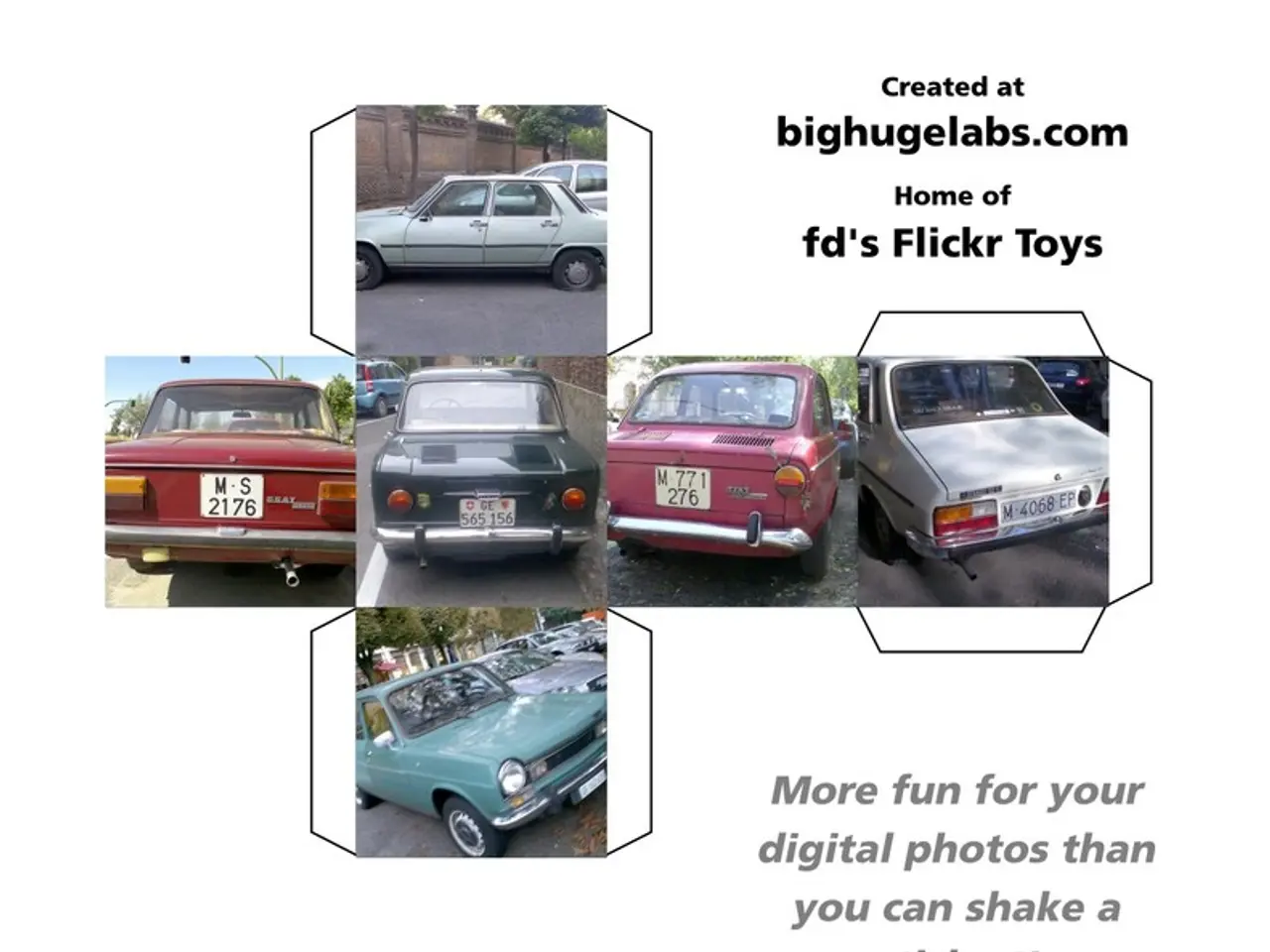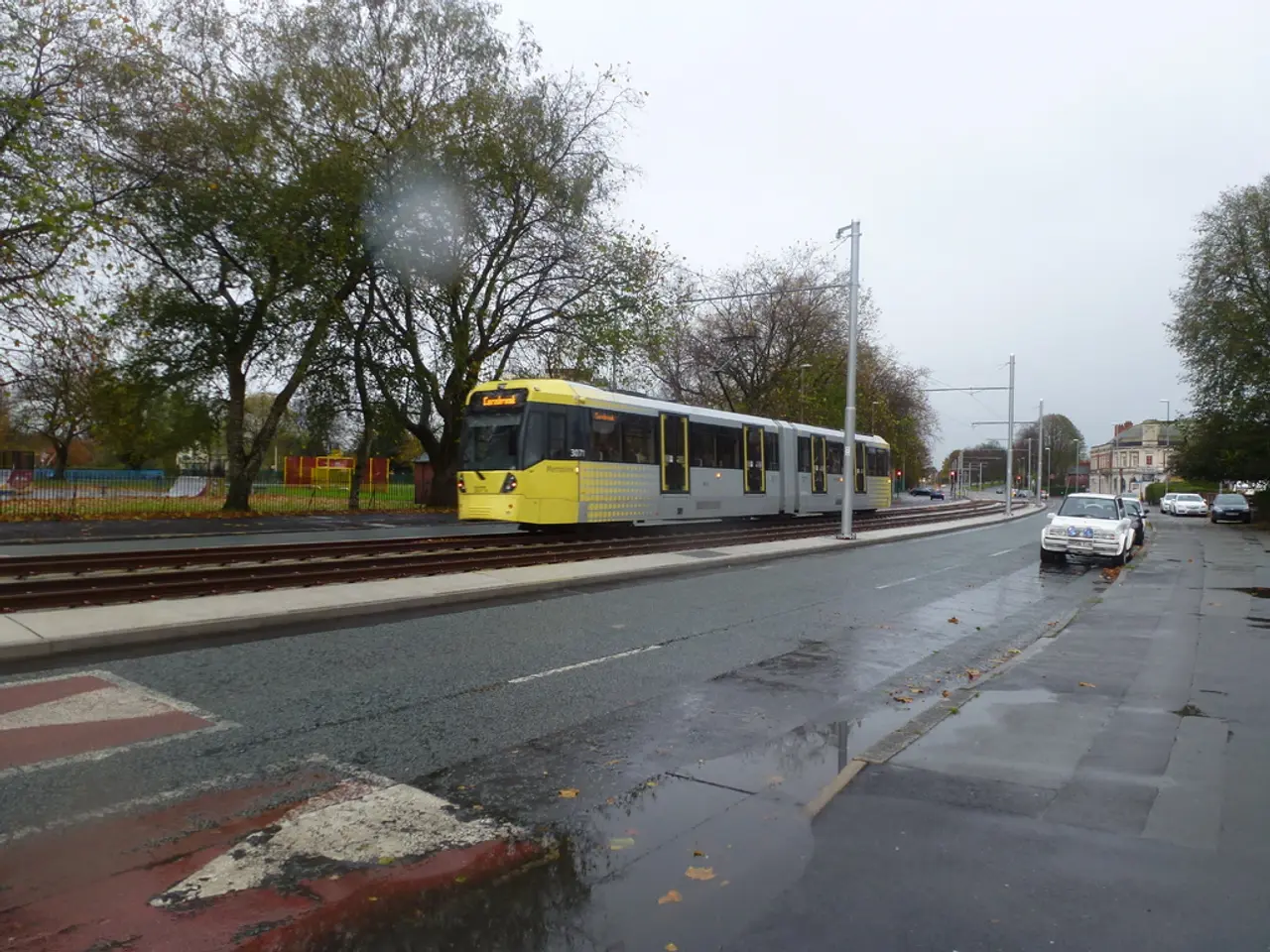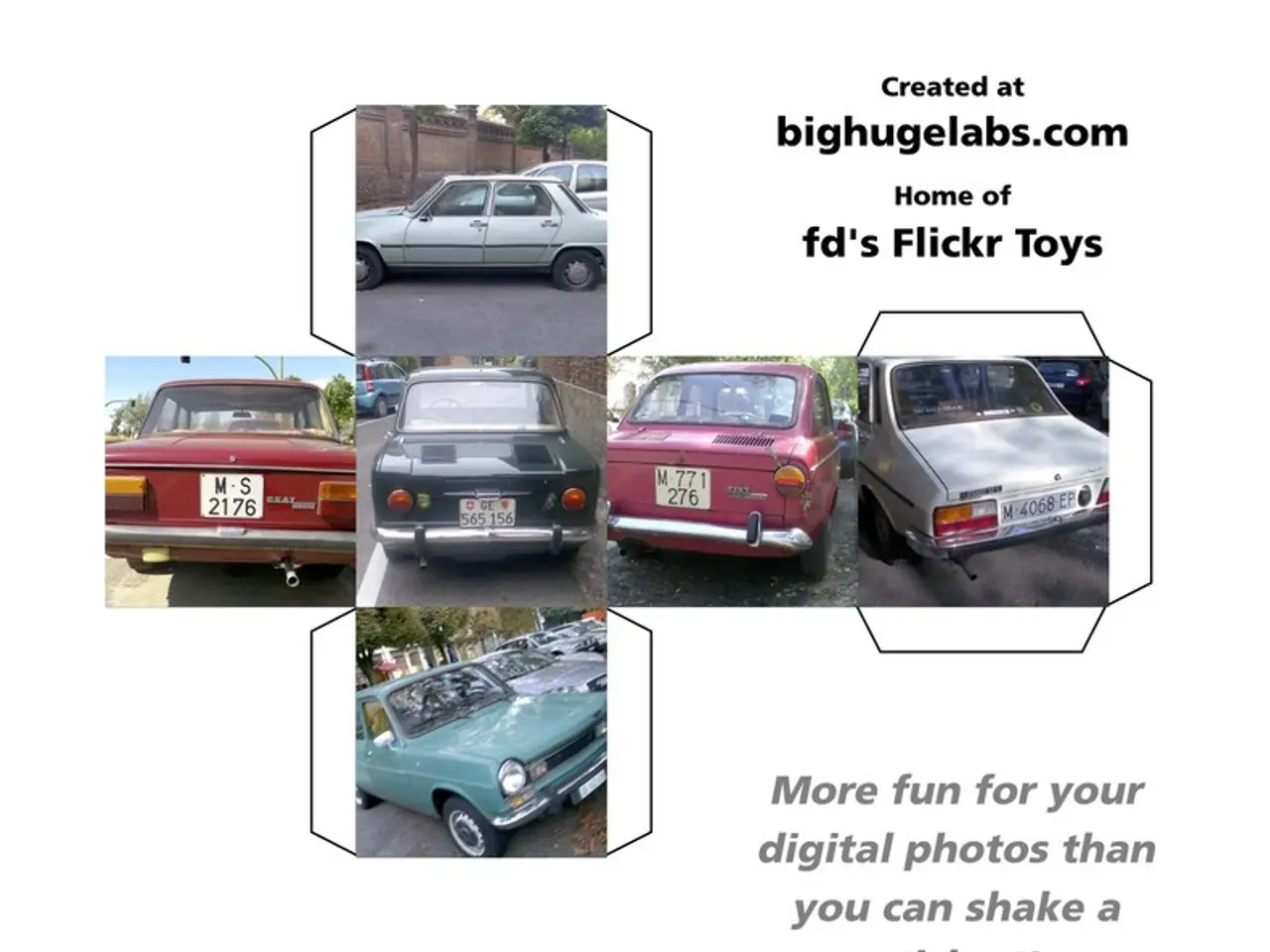EU's Leading Efforts in Decreasing Vehicle Dependence: Insights from These 5 Notable Projects
In an effort to combat climate change and improve urban air quality, the European Union has funded several projects aimed at reducing private vehicle usage and emissions. These initiatives have highlighted the importance of ambitious CO2 reduction targets, promoting sustainable transport modes, and fostering a circular economy in the automotive sector.
One such project, SWITCH, created a comprehensive campaign guide and toolbox, including an e-learning tool, explanation of a SWITCH campaign, and step-by-step guidance on developing, preparing, and implementing locally tailored SWITCH campaigns for follower cities. SWITCH implemented 5 campaigns in Antwerp, Donostia San Sebastian, London, Hounslow, Gdansk, and Vienna, focusing on linking revenues from parking with sustainable consistent and reliable financing for mobility management measures.
Another project, STARS, used a two-tier system: an accreditation programme to empower schools to cycle and a peer-to-peer engagement programme targeting children and young adults to devise their own campaigns to discourage car use. STARS delivered the accreditation programme in all partner cities across 188 primary schools, with 126 of them being accredited in the last 2 years. Peer-to-peer programmes were delivered by all partner cities with a total of 89 Youth Ambassador Schemes set up, involving over 51,000 students carrying out 974 activities.
The PUSH & PULL project, which took place from March 2014 to February 2017 with a budget of €1,379,880, introduced paid parking, increased parking fees, reduced and restrained parking supply, and implemented comparable measures to push car drivers towards more sustainable transport. The project reported an average of 3 new green jobs per city in parking management and increased spending in partner cities on parking management by 20% or 20,000 euros per year.
The EU project MOMO aimed to establish car-sharing as a part of new mobility culture and reduce energy consumption and CO2 emissions from car-sharing vehicles. MOMO informed 135,000 people across Europe about car-sharing, resulting in around 4000 people and 600 companies joining car-sharing services. The project also established car-sharing pilots with 13 real estate projects and 33 short-term rental points with hotels.
The European Green Deal’s Zero Pollution Action Plan highlights the critical impact of transport emissions on urban air quality and health, with measures emphasizing the promotion of walking, cycling, public transport, and Sustainable Urban Mobility Plans (SUMPs), especially in urban areas where transport-related pollution is concentrated. A circular economy approach is crucial for sustainability in transport. EU projects prioritize modernizing vehicle design, developing sustainable materials, advancing recycling technologies, and enhancing reverse logistics to reduce environmental impact throughout the vehicle's lifecycle.
These approaches reflect a systemic effort combining regulation, innovation, and behavioral change. EU projects demonstrate that achieving significant emission reductions from private vehicles requires not only strict legislative frameworks and industrial transformation but also enabling local authorities to develop sustainable urban mobility and infrastructure to shift demand away from private cars. Efforts in circular economy and material sustainability further complement emissions reduction by addressing environmental impacts across the vehicle lifecycle.
[1] European Commission. (2020). Regulation (EU) 2019/631. Retrieved from
[2] European Commission. (2020). Circular Economy Action Plan. Retrieved from
[3] European Commission. (2020). CO2 standards for cars and vans. Retrieved from
[4] European Commission. (2020). Zero Pollution Action Plan for Air. Retrieved from
- The SWITCH project, focused on sustainable transport, linked revenues from parking to reliable financing for mobility management measures within the finance sector, providing a comprehensive guide for city-specific campaigns.
- The European Green Deal's Zero Pollution Action Plan champions sustainable transport, advocating for walking, cycling, public transport, and Sustainable Urban Mobility Plans (SUMPs), and emphasizes the importance of a circular economy approach in reducing emissions from the transportation industry.




